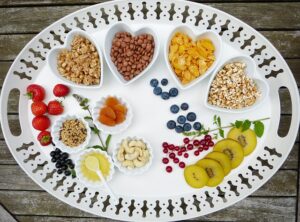When it comes to treating autism, it's a long-term journey, and one important part of that journey is making sure your child has a healthy diet. A good diet not only helps them get the right nutrition but can also help improve their behavior and overall well-being.
So, what should you pay attention to when it comes to your child's diet if they have autism? Let’s break it down.
Which Foods Should You Avoid?
Overly Soft Food
Many children with autism love foods that are soft and easy to chew, like veggie juices, overcooked rice, or very soft noodles. While these might seem easy to eat, they aren’t the best choice for your child in the long run. Chewing helps develop the muscles in their mouth and stimulates brain activity. Relying too much on soft foods can stop them from getting the practice they need to improve their mouth muscles and even their speech.
Foods with Artificial Colors or Additives
Brightly colored treats like bubble gum, chocolate, and fruity drinks often contain artificial colors or additives like sulfur dioxide. These can affect a child's nervous system and might make behavioral issues worse. It’s a good idea to limit or avoid these foods as much as possible.
Highly Acidic Foods
Some fruits and foods that are rich in acids, like oranges, lemons, and tomatoes, might cause problems for some children with autism. If your child seems sensitive to these foods, it’s best to either limit them or avoid them altogether, based on advice from your doctor.
What Foods Are Good for Your Child?
More Green Vegetables
Try to encourage your child to eat more vegetables like carrots, spinach, broccoli, cabbage, and cauliflower. These foods are full of nutrients and fiber, which are great for your child's health. They also help improve chewing skills, which is important for their sensory development and even speech.
Natural Foods Full of Vitamins
Fruits like apples, bananas, sugarcane, and plums, as well as foods like seaweed, black fungus, and fermented soybeans, are packed with vitamins and minerals that help your child stay healthy. These are great food choices to add to your child’s diet.
Final Thoughts:
Every child is different, and children with autism may be pickier or more sensitive about food. The key is to help your child build healthy eating habits, one step at a time, and with the guidance of a doctor or nutritionist. A good diet isn't just about filling their stomachs—it's about helping them grow physically and mentally in a healthy way.













